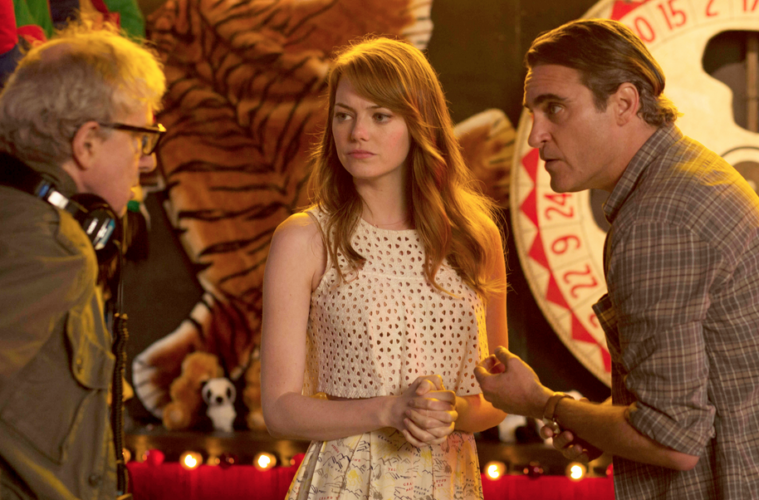
From his go-to white-on-black Windsor typeface (in use since 1977) onward, there’s a particular solace to be found in entering the latest film from Woody Allen. Here is a filmmaker who, year after year (and for nearly 50), churns out (mostly) quality work. In honor of his latest, the Joaquin Phoenix-led drama Irrational Man, I’ve updated a feature from a few years ago in which I combed through his entire filmography, revisiting classics and going through a handful of features I’d previously never encountered.
While the list ranges from my least- to most-preferred films, one owes it to themselves to seek out any entry from the director you may have missed. As you can see in my first pick, it’s remarkable that, after nearly half-a-century in the business, his complete filmography is still something to be admired. Discounting his team-up with Martin Scorsese and Francis Ford Coppola in 1989’s New York Stories, his 1994 TV movie Don’t Drink the Water, and the featurette Men of Crisis, you can see, below, our rundown of Allen’s entire body of directorial work and let us know your favorites in the comments.
45. You Will Meet a Tall Dark Stranger (2010)
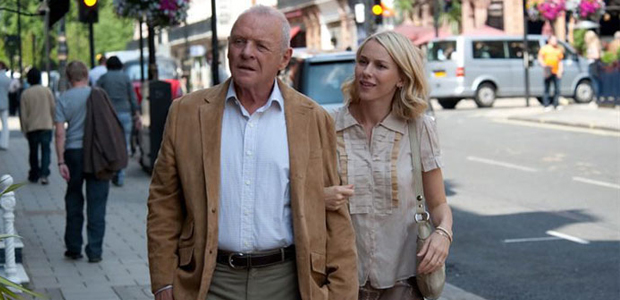
I stand by the statement that Woody Allen is yet to have a flat-out terrible entry into his filmography, but this fairly recent feature comes frighteningly close. Recycling themes of infidelity and chasing youthful desires would have been all well and good if done effectively, but with the drama coming off mostly inert and merely a few jokes landing, it only goes uphill from here.
44. Whatever Works (2009)
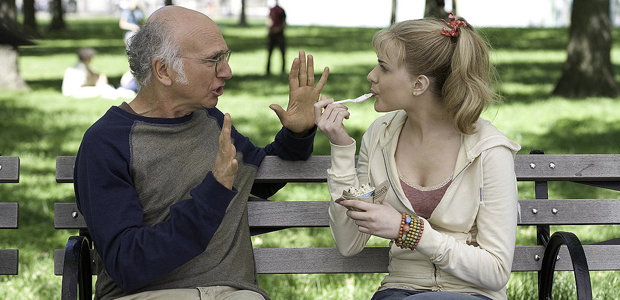
On the outset, Larry David and Woody Allen are a match made in heaven — unfortunately, the Curb Your Enthusiasm star led one of Allen’s most grating features. While many of the helmer’s works remain timeless, returning to this script crafted in the 1970’s resulted in a cynical, dubiously plotted exercise. What a shame that the late, great Harry Savides expended his time to participate in the production.
43. Scoop (2006)
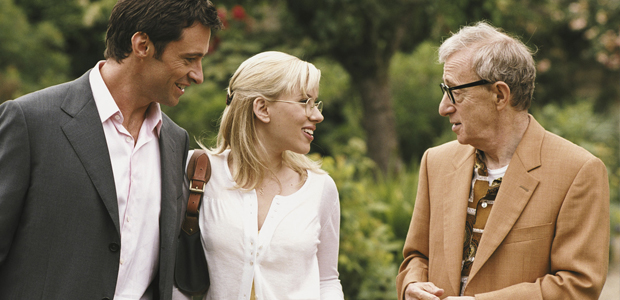
With actors as charming as Hugh Jackman and Scarlett Johannson, it’s a shame that Scoop remains one of Woody Allen’s lesser works, even with its generally amusing tone. Predictable from the outset, the comedy rarely works, despite some entertaining farcical situations. It was produced between two excellent Johannson-led features (Match Point and Vicky Cristina Barcelona); you’re better off checking out either of those instead.
42. September (1987)

Infamous for being the one film that, after editing an original incarnation, Woody Allen re-wrote, re-cast and re-shot, it’s easy to see why this one should have stayed on the shelf. Tedious and dour (while reaching few valuable insights), the drama surrounding a family on a weekend getaway is perhaps worth seeing for solid performances from the cast, but it goes down as one of Allen’s few major missteps.
41. The Curse of the Jade Scorpion (2001)
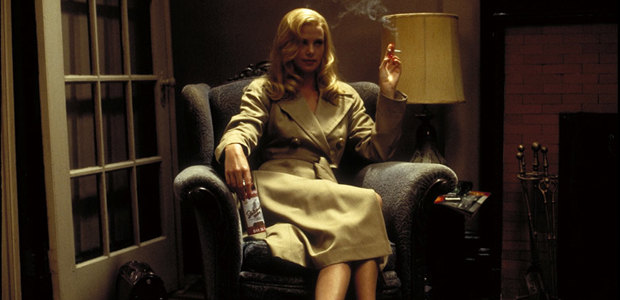
Relationships that don’t relay convincingly are coupled with a batch of one-liner duds, making The Curse of the Jade Scorpion easily among Woody Allen’s lesser works. This period piece — following a hypnotist-induced jewel heist and romantic relationships within an insurance agency — has little spark, and the lack of chemistry between our leads makes for a slightly enjoyable, but tepid experience.
40. What’s Up, Tiger Lily? (1966)

Woody Allen‘s directorial debut is an occasionally fun experiment that perhaps would have been better-served in short form. Dubbing over the Japanese spy the thriller International Secret Police: Key of Keys with his own dialogue, audiences were introduced to Allen’s quick-witted style — and, while it’s a clear stepping stone, in today’s age this would be nothing more than a YouTube exercise.
39. To Rome With Love (2012)

Like a few other films from the director, this is a prime example of actors, seemingly suited for his style, giving effort with diminished returns. Jesse Eisenberg juggling his girlfriend (Greta Gerwig) and her best friend (Ellen Page) should have made for a trio that knocks it out of the park, but Alec Baldwin‘s all-knowing insertions make for a gimmick that quickly wears thin. Add in three other stories that range from forgettable (Roberto Benigni) to one-note (Penelope Cruz), and this marks a disappointment in-between two quality projects.
38. Magic in the Moonlight (2014)
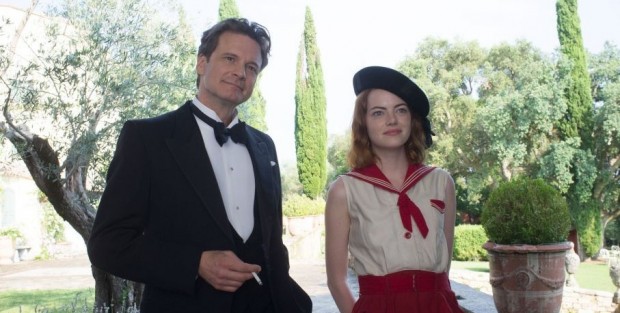
Despite gorgeous cinematography from Darius Khondji, Magic in the Moonlight is one of the director’s more lifeless and one-note offerings. With little chemistry between Colin Firth and Emma Stone — each charming enough in their own regard — we’re left with some faint interest as to the veracity of the mysticism at its center. When all is said and done, its all-too-safe ending registers as a dull disappointment — albeit one that comes to fit with the preceding events.
37. Melinda and Melinda (2004)
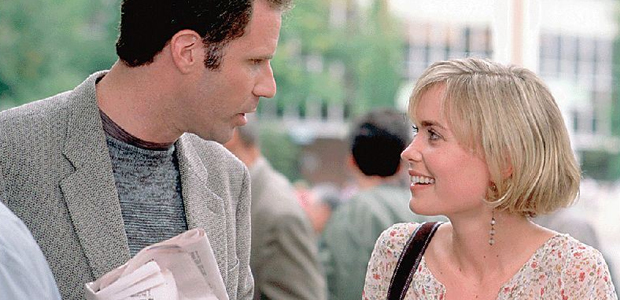
Woody Allen has always had a knack for the unexpected, and, although Melinda and Melinda centers on a story we’ve seen before, it’s never been told quite like this, nor with a supporting cast of this kind. Bringing along comedic actors Will Ferrell and Steve Carell doesn’t translate to the draw it should be, but with Allen showing us both the tragic and comedic in one feature, it manages to wrap up much of what’s he’s previously explored — unfortunately, to much more effective lengths.
36. Shadows and Fog (1991)
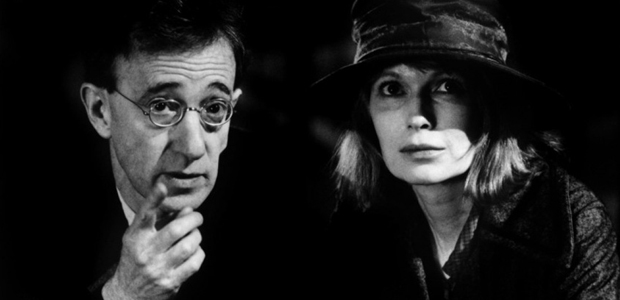
A loving shout-out to the films of German Expressionism, Shadows and Fog, though a starkly beautiful mystery, runs out of steam too quickly. Woody Allen‘s best homages have always borrowed from the auteurs that came before him, but add his unique stamp and create something entirely new. Unfortunately, the story is a replica with little soul that loses cohesion and forward momentum by about the half-way mark.
35. Small Time Crooks (2000)

Beginning as a mild-mannered, straight-up heist film, Woody Allen‘s first film of the new millennium injects a fairly hilarious twist that sees our story head in an unexpected direction. Like many other titles listed here, one must credit the director for going all the way with his concept; a shame that the results add up to one of his more forgettable entries.
34. Hollywood Ending (2002)
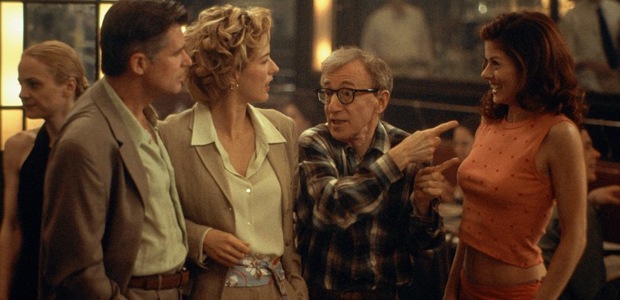
Woody Allen has often dissected the very craft of movie-making and, while slight, this is a comedy that takes one gag and successfully runs with it to the end. Playing a director that goes blind at the start of his next production, Hollywood Ending entertains by successfully poking fun at how easily one could potentially pull off such a feat.
33. Anything Else (2003)
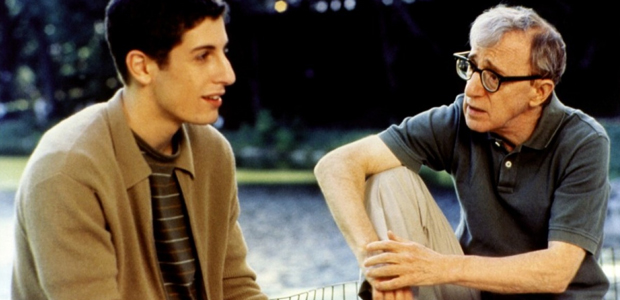
As a clear response to the American Pie franchise, Jason Biggs was looking to prove himself in more dramatic territory with this Woody Allen feature. Results are not nearly as bad as its reputation would suggest, though Anything Else is a mixed effort; Biggs actually proving himself a worthy protege (opposite a fine performance from Christina Ricci), none of which can entirely eclipse a fairly dull plot simply rehashed from a few of Allen’s better efforts.
32. Irrational Man (2015)

To the unsuspecting viewer, Woody Allen‘s latest feature may seem like another dabble in a May–December romance, but this soon reveals itself to be something altogether different. Although its fairly useless voice-over is little more than padding for the breezy farce, it’s perhaps most interesting to see the ways in which Joaquin Phoenix subverts a usual Woody Allen type. While some of his leading men as of late have wrangled the witticisms with speedy verve, Phoenix’s deliberate parsing makes for one of Allen’s more compelling figures, particularly as more sinister themes rise to the surface.
31. Cassandra’s Dream (2007)

One of Woody Allen’s more overlooked entries (and a financial disappointment, to say the least), Cassandra’s Dream mostly clicks, thanks to Ewan McGregor and Colin Farrell — two performers who know this genre well. While the stakes in most of his other films tend to rise and fall based on romantic relationships, this crime entry ups the ante to make for a convincing tragedy.
30. Interiors (1978)

Between two of his greatest masterpieces (Annie Hall and Manhattan), Woody Allen got deadly serious for Interiors, a dour and emotionally gripping investigation of familial relationships. The moping around may be at an all-time high for Allen, and it’s for this that Diane Keaton proves how effectively she can bounce from one of Allen’s most iconic characters to something wildly different and, still, deliver a marvelous performance.
29. Zelig (1983)
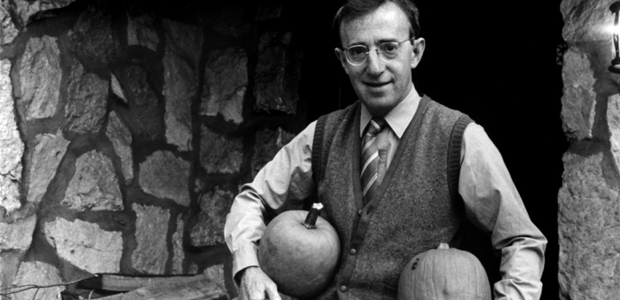
While this entry is beloved by many, I found the premise to, not unlike his debut, wear thin quickly. Creating a faux documentary, he tracks the mysterious Leonard Zelig through the course of his (fictitious) life. Production values are top-notch — as to be expected of cinematographer Gordon Willis and editor Susan E. Morse — but this one would work better in a truncated form. If one wants to see a more successful cousin, style-wise, to this project, watch Orson Welles‘ F For Fake.
28. Celebrity (1998)

Though widely considered to be one of Woody Allen‘s failures, Celebrity — as flimsy as it may feel in certain areas — is a mostly compelling examination of the fast-paced Hollywood lifestyle. Perhaps due to my taste for the darker and more cynical side of this filmmaker, Kenneth Branagh effectively conveys how sharply a career can turn when you’re at your last straw.
27. Everything You Always Wanted to Know About Sex* (*But Were Afraid to Ask) (1972)

Since his debut, Woody Allen has greatly enjoyed conjuring and laughing at themes of sex, but he got much of this out of the way early in his career. While some of the vignettes in this collection don’t land as well as others, a few (notably Allen as a lone sperm) are as iconic and funny as anything in his career.
26. Alice (1991)

It’s only appropriate to bring up Alice around the time of Blue Jasmine. While both lead characters are on a search for meaning in their respective lives, they also provide some of the best female lead performances in Allen’s filmography. Following Mia Farrow as a distraught wife looking for something more, this magical realist tale finds her taking potions to open her mind, the ingestion providing a strange, moving journey of self-discovery.
25. Bananas (1971)

Heading overseas, Woody Allen set out on a slapstick streak with this war satire. Climbing up another step of the screwball ladder, his third feature finds him amidst a revolution where he, once again, delivers mile-a-minute gags, most of which work. As a bonus, you even get to see Sylvester Stallone as Subway Thug #1, before the duo teamed again many years later on Antz.
24. Midnight in Paris (2011)
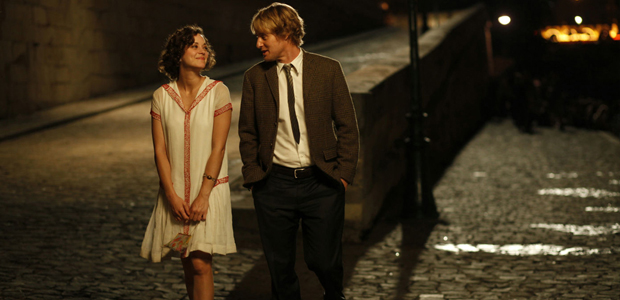
While Woody Allen’s box office prospects mean very little in the long run (he being one of the few directors that can get a film made in the blink of an eye), it was comforting to see that audiences still think highly of the helmer, providing him with his highest-grossing film to date. I wasn’t over the moon with the characters in this fantasy, but Allen’s exploration of “golden age” longing provides the opportunity to fall in love with a location, more than anything else.
23. Mighty Aphrodite (1995)
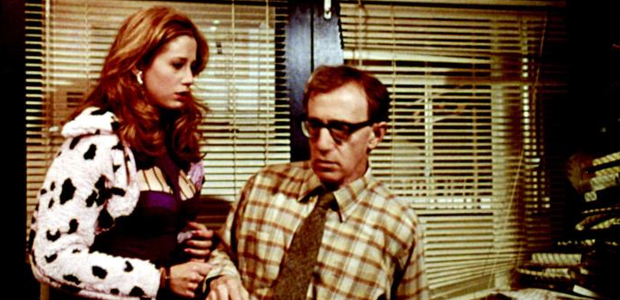
The self-deprecating Allen often puts himself opposite pining, beautiful ladies, but for this mid-’90s feature he played match-maker. Co-starring with Mira Sorvino — in an Oscar-winning role that put her on the map — Mighty Aphrodite is a consistently funny, surprisingly sweet effort from the director, complete with a Greek choir.
22. A Midsummer Night’s Sex Comedy (1982)
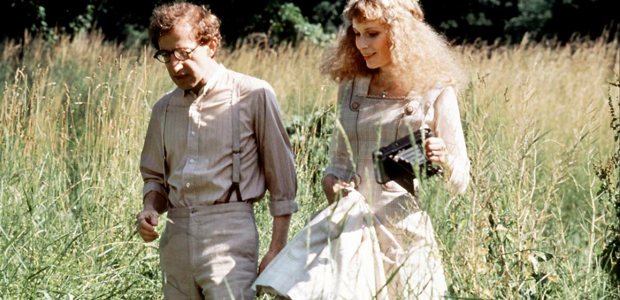
This may be a light entry in Woody Allen‘s career, but it’s one I have a great deal of fun with. Tracking couples (a recurring scenario in his works) who pursue extramarital affairs, the Shakespearean period setting (complete with pleasant scenery) gives weight to abundant laughs.
21. Another Woman (1988)
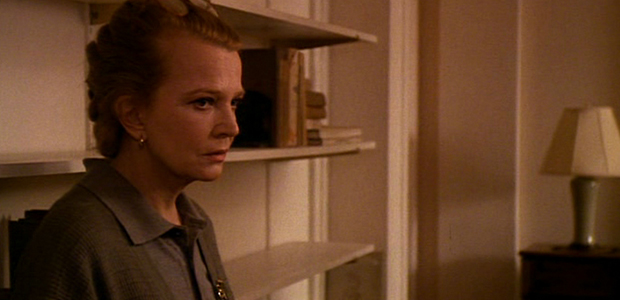
While this title could have easily been used for dozens of other Woody Allen features (with a few exploring the idea to a greater effect), Another Woman delivers an intriguing, unexpected prospect. As lensed by Sven Nykvist, Ingmar Bergman‘s frequent collaborator, this film adopts the leisurely pace of his work. We follow Marion Post (Gena Rowlands), who reflects on her own marriage and life, thanks to overhearing her neighbor’s therapist session; what results is a satisfying exploration of regrets that will stick with one longer than most films from the director.
20. Take the Money and Run (1969)
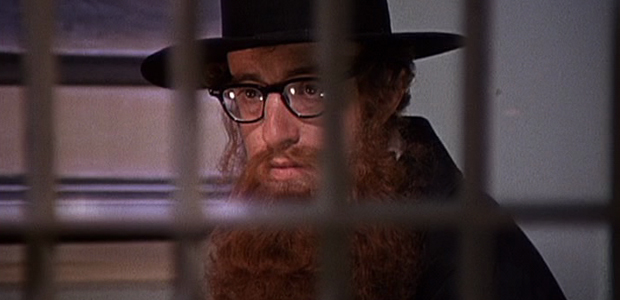
With Steven Spielberg and Martin Scorsese both delivering on-the-run, Bonnie & Clyde-esque robbery adventures early in their careers (those being The Sugarland Express and Boxcar Bertha, respectively), Woody Allen was ahead of the curve with this hilarious faux-documentary. In only his second feature — the story of incompetent bank robber Virgil Starkwell — he displays the maniac-but-sharp absurd comedy skills he’d go on to perfect in later works.
19. Everyone Says I Love You (1996)
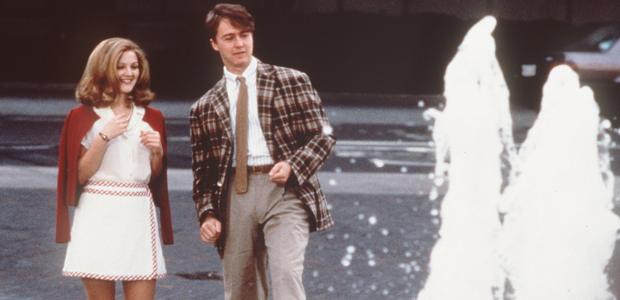
Featuring one of Woody Allen‘s most eclectic ensembles — including Edward Norton, Alan Alda, Drew Barrymore, Goldie Hawn, Julia Roberts, Tim Roth, and a young Natalie Portman — Everyone Says I Love You is a fairly charming musical. It might not add up to a great deal, but when you have a smile on your face for a majority of the runtime, it’s hard to complain about much else.
18. Manhattan Murder Mystery (1993)
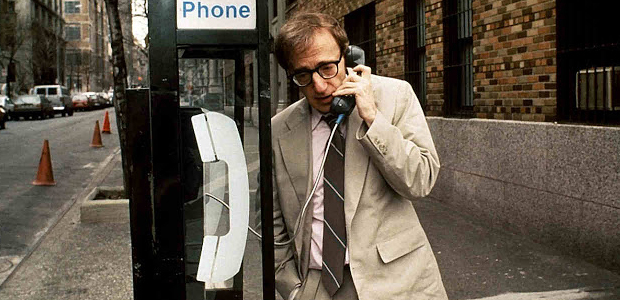
Under another director, the above trio of words could easily be misconstrued as some sort of cop drama; instead, Woody Allen makes this crime tale very much his own. Reteaming with his Annie Hall star Diane Keaton — their first substantial collaboration in nearly a decade-and-a-half, and based on an earlier draft of that 1977 classic — this hilarious thriller farce truly reminds me, as a New Yorker, of the mysteriousness behind the next-door neighbor you never bothered to acquaint yourself with.
17. Sweet and Lowdown (1999)
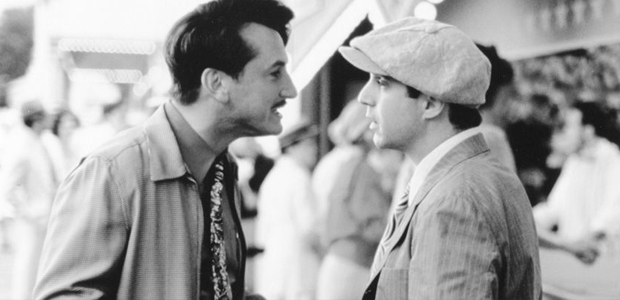
While Woody Allen has always loved mixing the fictitious with a truthful approach, it’s never been more convincing than in this mock-biography of 1930’s jazz musician Emmet Ray, played by Sean Penn. Due in part to its infectious rhythm (thanks to the soundtrack) and commanding lead performance behind an unlikable protagonist, this one feels a bit different from most fast-paced Allen features for one major reason: he gives the character study welcome room to breathe.
16. Radio Days (1987)
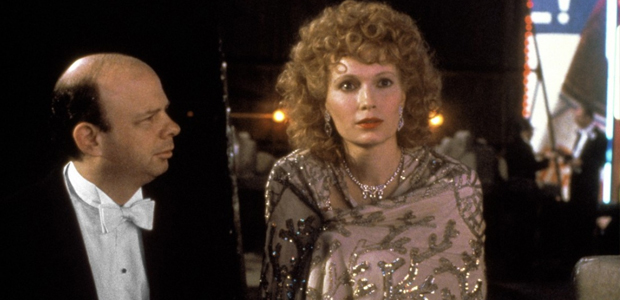
Whether his characters discuss it or he simply portrays it with the camera, Woody Allen has dissected, admired, and showcased nostalgia in many forms throughout his oeuvre, but never to greater effect than in Radio Days. Narrated by the director himself — who is never seen onscreen — he takes on a whirlwind, enchanting tour of his childhood days with just a radio. It’s a simply lovely journey that will have you digging out your own audio receiver.
15. Broadway Danny Rose (1984)
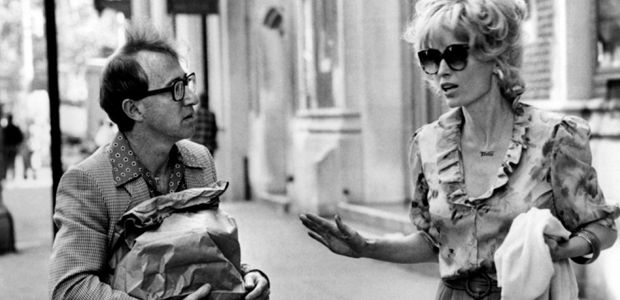
One of Woody Allen‘s most purely entertaining features, Broadway Danny Rose follows the performer as an earnest talent manager going through a tough time for one of his clients. As told through flashbacks by a group of older comics in NYC’s Carnegie Deli, it’s a blissful experience for a viewer, despite the struggles our lead character goes through and thanks to Gordon Willis‘ timeless cinematography, along with a delightful score.
14. Match Point (2005)
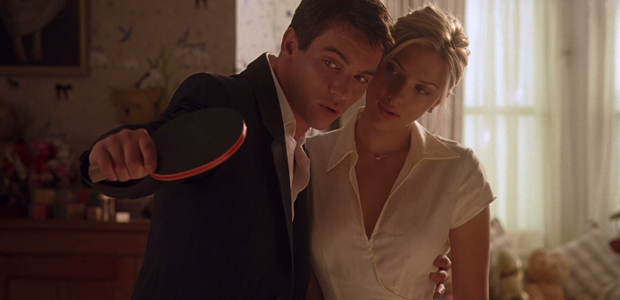
For the first time in a handful of years, Woody Allen proved he was a still a filmmaker teeming with vitality, thanks to the twisty, seductive Match Point. One of his most successful films, and also one of his personal favorites, the story of compulsive lust and its consequences is one of this filmmaker’s best works. Just a few years later, however, he’d reteam with Scarlett Johansson again for an even more accomplished title.
13. Sleeper (1973)
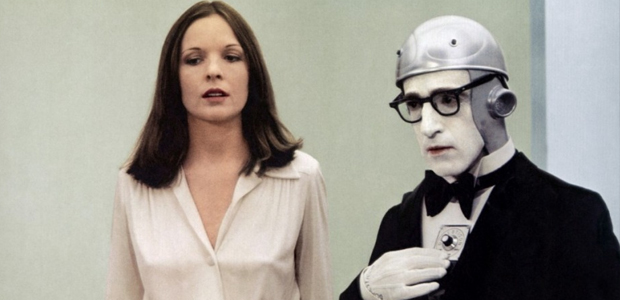
Although they kicked things off on Play It Again, Sam, Sleeper marks the first time Woody Allen would both direct and act alongside Diane Keaton. As the beginning of a fruitful relationship, this sci-fi comedy is more of the director’s fast-paced brand of humor and, when it’s this on-point, there’s nothing to complain about. When harkening back to the stylings of Buster Keaton and Charlie Chaplin, Allen proved at this early stage in his career that he could hang with the best of them.
12. Blue Jasmine (2013)
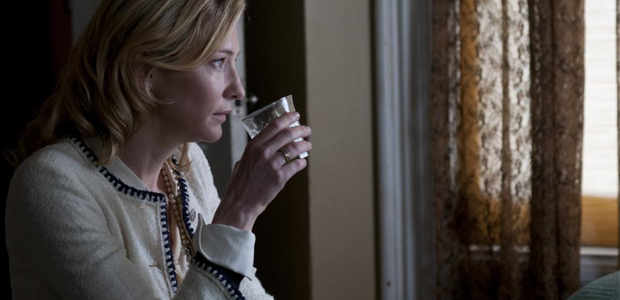
Woody Allen‘s drama is one of his most perceptive in years. Cate Blanchett is stellar as a distraught New York once-millionaire who, after her life of luxury goes down the drain, must adjust to a working class lifestyle. It’s dark — including a capturing of the city in a way he never has before: through negative light — but still injected with Allen’s wit. Blue Jasmine is a vivid testament that this a filmmaker who may never run out of creative juice.
11. Bullets Over Broadway (1994)
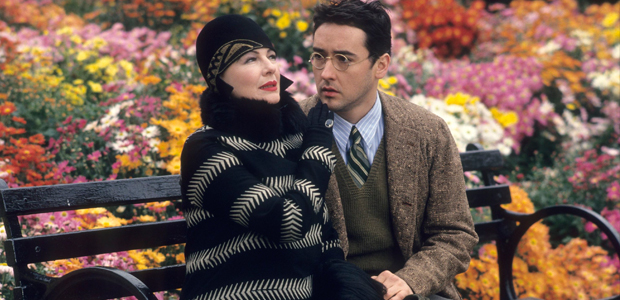
Before Zach Braff gets meta and embarks on a Broadway production of this drama, one owes it to themselves to give one of Woody Allen‘s best 1990’s films a revisit. (And, after completely nailing the Prohibition-era setting, one wishes HBO would give the director a stab at directing Boardwalk Empire.) In addition, Bullets Over Broadway packs one of Allen’s finest scripts, offering some high melodrama and a great deal of fun.
10. Love and Death (1975)
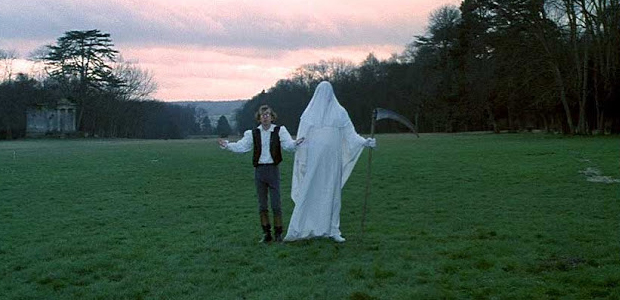
The most flat-out hilarious film Woody Allen has ever made, Love and Death not only deals with these eponymous themes in an expert fashion, but does much more: after a string of screwball absurdist comedies — but before he went on to make Annie Hall — he capped things off with this must-see examination of philosophical pondering and Russian literary parody.
9. Stardust Memories (1980)
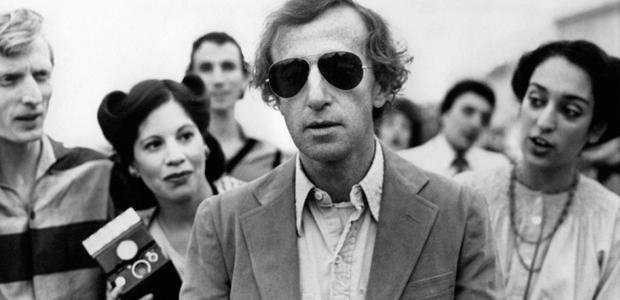
Woody Allen‘s homage to Frederico Fellini is one of his strongest works, but perhaps moreso considering what it was in response to. After crafting the acclaimed Annie Hall and Manhattan, Allen explores criticism, reception, and the artistic process itself. Bitter, self-conscious (seemingly to a fault, for many viewers), I found it not only gorgeous to look at (thanks again, Gordon Willis), but a biting, observant film.
8. Deconstructing Harry (1997)
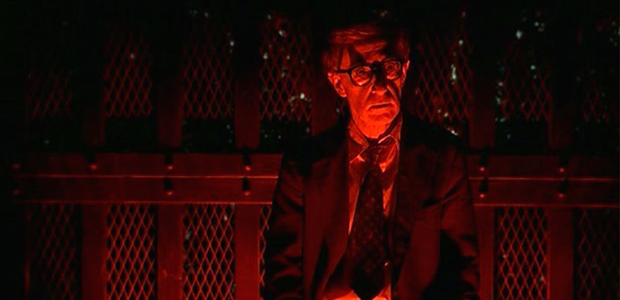
While his most recent release goes to some dark places, Deconstructing Harry is on an entirely different level. Considering my aforementioned love for Stardust Memories, it’s no surprise I find much to admire in this reflexive look at a writer’s struggling life. The film uses its R rating to a full extent, and any riotous scene that revolves around a cannibal husband gains major points in my book. Oh, and if there’s any question as to the fate of our lead, it’s capped off by the hilarious portrayal of a certain “famous” character by Billy Crystal.
7. Vicky Cristina Barcelona (2008)
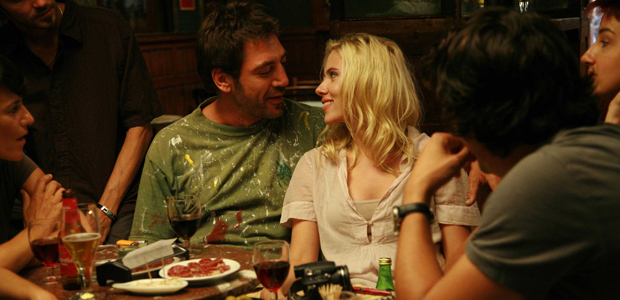
In reteaming with Scarlett Johannson once more, Woody Allen produced both one of his finest ensembles and sharpest scripts yet for this Spain-set tale of romance. As the filmmaker convinces us to fall in love with not only the main quartet (also made up of Javier Bardem, Rebecca Hall, and Penelope Cruz), but the location itself, this passionate, gorgeously rendered drama is his last flat-out great feature.
6. Hannah and Her Sisters (1986)

One of Woody Allen‘s most ambitious undertakings, Hannah and Her Sisters, tracks our title characters on a two-year journey that’s bookended by Thanksgiving dinners. Yet again influenced by Ingmar Bergman (this time taking a structural note from one of the Swedish master’s greatest works, Fanny and Alexander), Allen crafts some of his most wonderfully realized and complex characters here.
5. Crimes and Misdemeanors (1989)
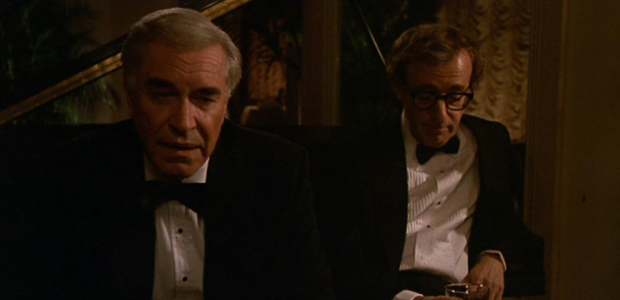
It would be over two decade before Joel and Ethan Coen delivered A Serious Man, and so I wouldn’t be shocked to learn that they watched this Woody Allen classic a few times before the scripting phase commenced. Both dark comedies helmed by Jewish filmmaking greats contemplate the many moral decisions one is faced with in life, as, here, we learn parallel stories about judgement, guilt, consequences, and potential redemption. Allen has rarely been more discerning than with Crimes and Misdemeanors.
4. Husbands and Wives (1992)
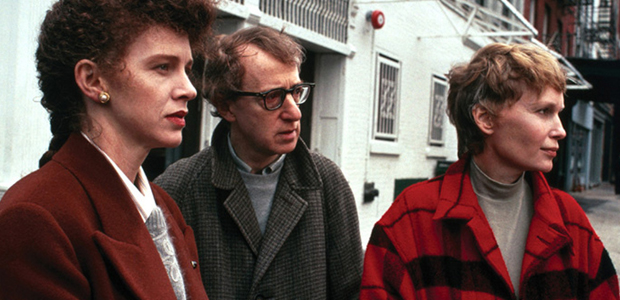
Woody Allen has always been skilled at examining marriage, infidelity, and the road between them. With this early 1990’s feature he had never done it better, thanks to a fine balance of drama and comedy found in tracking two Manhattan couples. Allen spent a good deal of his early career honoring Ingmar Bergman‘s work, but this Scenes From a Marriage riff is his most successful.
3. Manhattan (1979)

Easily the most jaw-droppingly gorgeous of all of Woody Allen‘s films. Continuing his relationship with Gordon Willis — this time with an all-encompassing 2.35:1 aspect ratio — Manhattan captures the engulfing, masterful architecture of the Big Apple in a way few films manage to accomplish, all as we follow the romantic pursuits of a struggling writer. Add in terrific performances from all involved and you’ve got one of the director’s most sumptuous accomplishments.
2. The Purple Rose of Cairo (1985)

Considered by Woody Allen to be one of his greatest works, The Purple Rose of Cairo is a fantastical tale of romance and cinematic passion. Under other direction this could have been an overblown adventure, but instead, Allen injects the perfect amount of humanity, wit, and charm for one of his enrapturing masterpieces, following a movie star (Jeff Daniels) who leaves the screen and enters the life of a woman (Mia Farrow) in need of some escapism.
1. Annie Hall (1977)
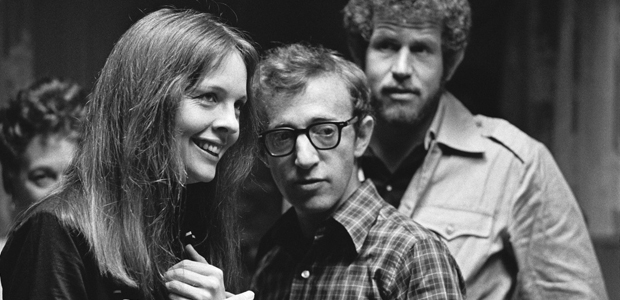
Can it be anything else? As a sharp turn from Woody Allen‘s screwball beginnings, the film’s introduction tells us we’re climbing directly inside the director’s (or, this time, Alvy Singer’s) brain. With an infectious cadence in both the sharp-as-ever dialogue and nonconformist editing, it may very well be the best romantic comedy, bar none. And, for those wondering, this beat Star Wars at the Oscars for good reason.
What are your favorite films from Woody Allen?

